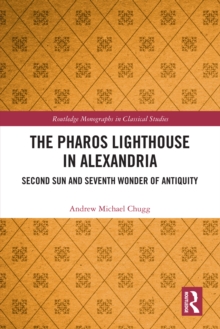
Frankness, Greek Culture, and the Roman Empire Hardback
by Dana Fields
Part of the Routledge Monographs in Classical Studies series
Hardback
Description
Frankness, Greek Culture, and the Roman Empire discusses the significance of parrhesia (free and frank speech) in Greek culture of the Roman empire.
The term parrhesia first emerged in the context of the classical Athenian democracy and was long considered a key democratic and egalitarian value. And yet, references to frank speech pervade the literature of the Roman empire, a time when a single autocrat ruled over most of the known world, Greek cities were governed at the local level by entrenched oligarchies, and social hierarchy was becoming increasingly stratified.
This volume challenges the traditional view that the meaning of the term changed radically after Alexander the Great, and shows rather that parrhesia retained both political and ethical significance well into the Roman empire.
By examining references to frankness in political writings, rhetoric, philosophy, historiography, biographical literature, and finally satire, the volume also explores the dynamics of political power in the Roman empire, where politics was located in interpersonal relationships as much as, if not more than, in institutions.
The contested nature of the power relations in such interactions - between emperors and their advisors, between orators and the cities they counseled, and among fellow members of the oligarchic elite in provincial cities - reveals the political implications of a prominent post-classical intellectual development that reconceptualizes true freedom as belonging to the man who behaves - and speaks - freely.
At the same time, because the role of frank speaker is valorized, those who claim it also lay themselves open to suspicions of self-promotion and hypocrisy. This volume will be of interest to students and scholars of rhetoric and political thought in the ancient world, and to anyone interested in ongoing debates about intellectual freedom, limits on speech, and the advantages of presenting oneself as a truth-teller.
Information
-
Only a few left - usually despatched within 24 hours
- Format:Hardback
- Pages:246 pages
- Publisher:Taylor & Francis Ltd
- Publication Date:01/01/0001
- Category:
- ISBN:9780367262419
Other Formats
- Paperback / softback from £36.59
- PDF from £35.99
- EPUB from £35.99
Information
-
Only a few left - usually despatched within 24 hours
- Format:Hardback
- Pages:246 pages
- Publisher:Taylor & Francis Ltd
- Publication Date:01/01/0001
- Category:
- ISBN:9780367262419










